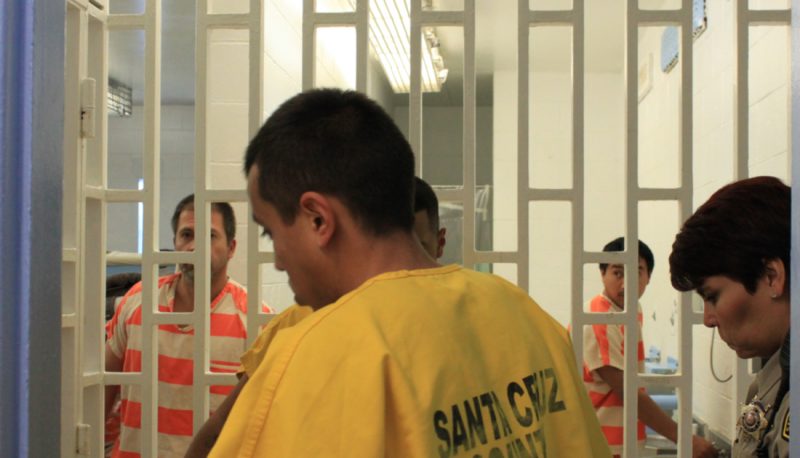“Confirmed Judges, Confirmed Fears” is a blog series documenting the harmful impact of President Trump’s judges on Americans’ rights and liberties. Cases in the series can be found by issue and by judge at this link
Trump Eleventh Circuit Judge Barbara Lagoa cast the deciding vote to prevent a lawsuit against the US for damages caused by alleged constitutional violations and negligence by federal prison officials. The June 2021 decision was in Shivers v US.
Mackie Shivers is in his mid-60s and serving a sentence in a federal prison. Officials assigned a particular 26 year-old cellmate to Shivers even though, according to Shivers, they knew or should have known beforehand that the individual was “presenting aggressive and violent tendencies toward other prisoners” and “had a history of assaulting his cellmates.” No action was taken on Shivers’ complaints about his safety, and eight months after the assignment, the cellmate “stabbed Shivers in the eye with a pair of scissors while Shivers was sleeping,” leaving him “permanently blind” in that eye. Shivers brought a lawsuit on his own behalf, including suing the US for damages under the Federal Tort Claims Act (FTCA).
Under the FTCA, the federal government generally can be sued for injury caused by negligent or wrongful conduct of its employees, but cannot be sued for such conduct if it is in the course of performing a “discretionary function.” Stivers contended he should be able to take discovery to develop evidence to challenge the government’s invocation of that exception. A federal district court disagreed and dismissed Stivers’ claim on its face due to the “discretionary function” exception. Stivers appealed.
Trump judge Lagoa cast the deciding vote in a 2-1 decision affirming the dismissal of Stivers’ complaint. The majority rejected Stivers’ argument that the “discretionary function” exception does not apply because the officials’ conduct was not simply negligent in making cell assignments, but was also unconstitutional in violation of the Eighth Amendment’s ban on cruel and unusual punishment. The majority rejected this argument, claiming that FTCA’s language on the discretionary function exception is “unambiguous and categorial,” and that both Congress in the statute and the Supreme Court in its caselaw “left no room for the extra-textual ‘constitutional claims exclusion’” from the law’s discretionary function exception. According to the majority, claims under the FTCA are “not based on alleged constitutional violations,” and a victim like Stivers “cannot circumvent” the limits on FTCA liability as he tried to do.
Judge Charles Wilson strongly dissented. As he pointed out, prior case law, including in the Supreme Court and the Eleventh Circuit, clearly indicates that by “violating the Constitution, a government employee necessarily steps outside his permissible discretion” and thus “outside the discretionary function exception’s protection.” He argued that the court should join almost all the other federal appeals courts that have considered the issue and rule that the exception “does not shield the government from FTCA liability based on unconstitutional conduct,” so that Stivers should have had the opportunity to try to prove his claims.
Specifically, Wilson continued, the Supreme Court has explained that the discretionary function exception properly applies “only to conduct that involves the permissible exercise of policy judgment,” and that the government “has no discretion to violate the Federal Constitution.” Accordingly, Wilson explained, “virtually every” federal appeals court “to address the issue” – a total of five out of six – has concluded that “the discretionary function exception cannot provide blanket immunity for tortious conduct that violates the Constitution,” and language in a previous Eleventh Circuit decision agrees. The “logic” of the Seventh Circuit and the majority here is “unpersuasive”, Wilson wrote, because it improperly “assumes that evaluating a complaint’s constitutional allegations” somehow “transforms the substance of an FTCA claim from state tort law to constitutional law.” Instead, Wilson went on, the claims of unconstitutional conduct in such case are considered “only as negating the discretionary function defense” and “not as part of the substantive FTCA claim.” So in this case, Wilson elaborated, if Stivers can prove that the decision to place him in the same cell as the dangerous prisoner who attacked him violated the Eighth Amendment, his FTCA claim would move forward “based on the allegations of negligence,” and the government would be liable if those allegations are proven. Wilson would have returned the case to the district court to determine whether Stivers “plausibly alleged” an Eighth Amendment violation so his case to hold the government accountable could have proceeded.
Instead, as a result of the deciding vote of Trump judge Lagoa, Stivers will not even have a chance to prove his claim that the government should be held accountable for the devastating injuries he suffered. In addition, other victims of federal government abuse in Georgia, Florida, and Alabama will not have a chance to try to prove their cases, unlike in most parts of the country. The case underlines the importance for our fight for our courts of President Biden promptly nominating and the Senate promptly confirming nominees to the Eleventh Circuit.

